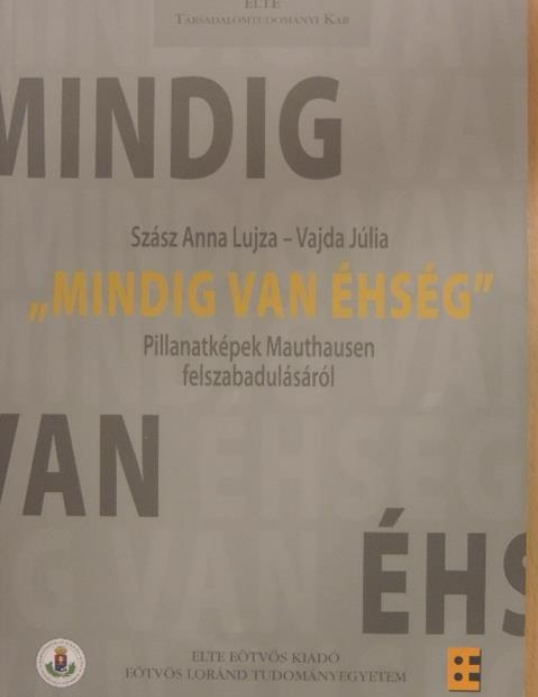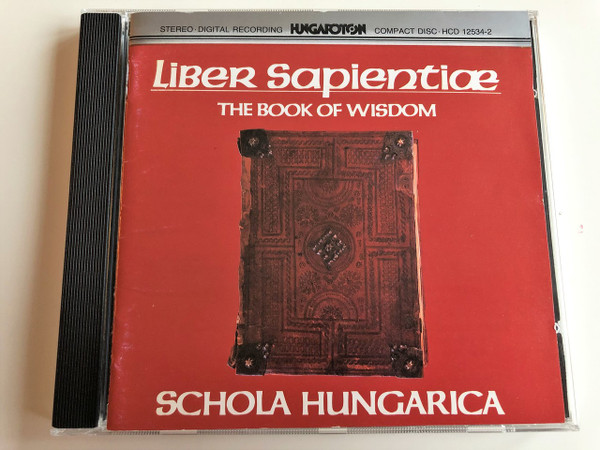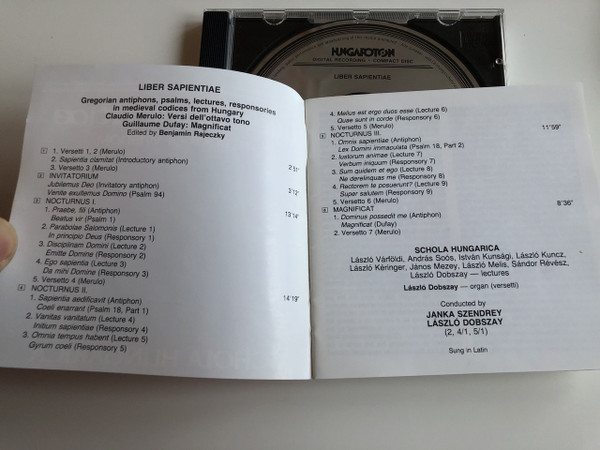Description
There Is Always Hunger – Snapshots of the Liberation of Mauthausen / Paperback
Mindig van éhség – Pillanatképek Mauthausen felszabadulásáról / Szász Anna Lujza, Vajda Júlia (2012)
Product Information
- Authors: Szász Anna Lujza, Vajda Júlia
- Publisher: ELTE Eötvös Kiadó Kft.
- Publication Year: 2012
- Place of Publication: Budapest
- Page Count: 87 pages
- Binding Type: Glued paperback (ragasztott papírkötés)
- Language: Hungarian
- Dimensions: Width: 17.00 cm × Height: 24.00 cm
- ISBN: 9789633121023 / 978-9633121023
Overview
Mindig van éhség – Pillanatképek Mauthausen felszabadulásáról (“There Is Always Hunger – Snapshots of the Liberation of Mauthausen”) is a deeply moving work by Szász Anna Lujza and Vajda Júlia, published by ELTE Eötvös Kiadó in 2012. The book is based on narrative interviews conducted with survivors of the Mauthausen concentration camp, providing a profound reflection on trauma, memory, and human endurance.
Through the survivors’ voices, the authors reconstruct moments surrounding May 5, 1945, when American troops liberated the camp. The testimonies evoke the haunting paradox of liberation — the sudden shift from starvation to abundance, when the attempt to feed the emaciated prisoners tragically resulted in new deaths. The book explores how survivors internalized, remembered, and retold this experience, forming a collective memory of hunger that transcends time and place.
Blending oral history, sociology, and narrative interpretation, the volume gives voice to those who endured the unimaginable, inviting readers to reflect on human fragility, remembrance, and ethical responsibility.
Hungarian Translation – Áttekintés
A Mindig van éhség – Pillanatképek Mauthausen felszabadulásáról című kötet Szász Anna Lujza és Vajda Júlia munkája, amely az ELTE Eötvös Kiadó gondozásában jelent meg 2012-ben. A mű narratív interjúkra épül, amelyeket a mauthauseni haláltábor túlélőivel készítettek, és amelyek az éhség, a túlélés és a felszabadulás pillanatainak feldolgozását mesélik el.
A kötet központi eseménye 1945. május 5., a felszabadítás napja, amikor az amerikai katonák megérkeztek a táborba. A túlélők elbeszélései drámai képet festenek arról, ahogyan a hirtelen jött bőség — a katonák jó szándékú, de túlzott élelmezése — újabb tragédiához vezetett: sokan a testük képtelensége miatt haltak meg, hogy újra egyenek.
A szerzők négy történeten keresztül mutatják be ezt a megrázó tapasztalatot, amelyben az éhség nemcsak fizikai, hanem morális és emlékezeti valóságként is jelen van. A könyv egyszerre szól a túlélés felelősségéről és a „Beszéld el!” parancsáról — arról, hogy kötelességünk továbbadni mindazt, amit a tanúk elmondtak.
Product Features
- Subject Area: Holocaust Studies, Oral History, Sociology of Memory
- Focus: Survivor narratives from the Mauthausen concentration camp
- Approach: Narrative reconstruction and interpretative sociology
-
Key Themes:
Audience: Readers of Holocaust history, sociologists, educators, and students of memory studies- The liberation of Mauthausen (May 1945)
- Hunger as both physical and symbolic experience
- The moral responsibility of remembering
- The transformation of trauma into narrative
- The “Beszéld el!” (“Tell it!”) imperative of testimony
Interesting Facts
- Based on Survivor Testimonies: The book draws from first-hand narrative interviews, recorded decades after liberation, capturing both personal and collective dimensions of memory.
- The Paradox of Liberation: Survivors recount how abundance became deadly — when American liberators offered large portions of food to starving prisoners, many could not digest them, leading to tragic deaths.
- Memory as Reconstruction: The authors describe storytelling as a process of re-writing history through lived experience, where each retelling reshapes understanding and collective memory.
- Academic Collaboration: Written by an ELTE sociology lecturer and a PhD student, the work combines scientific rigor with empathy, bridging scholarly and humanistic perspectives.
Hungarian Translation – Érdekes Tények
- Túlélők elbeszélésein alapul: A mű személyes interjúkra épül, melyekben a mauthauseni túlélők saját szavaikkal idézik fel a felszabadulás és az éhség emlékeit.
- A felszabadulás paradoxona: A kötet bemutatja, hogyan vált a jó szándékú segítség – az amerikaiak által adott élelem – tragikus következményűvé a szervezet legyengülése miatt.
- Az emlékezet újraírása: A szerzők szerint minden elbeszélés egy újabb „újraírása a történelemnek”, amelyben az egyéni és kollektív emlékezet összefonódik.
- Tudományos és emberi nézőpont: A kötet társadalomtudományi precizitással és empátiával közelít a túlélők történeteihez, egyensúlyt teremtve a tudomány és az emberi sors között.
Publisher
Published by ELTE Eötvös Kiadó Kft., Budapest, 2012. All rights reserved.
We value your feedback! Share your experience with this product to help others make informed decisions. Your review is important to us!
Hashtags
-
English: #SzaszAnnaLujza #VajdaJulia #MauthausenLiberation #HolocaustStudies #OralHistory #SurvivorNarratives #ELTEEotvosKiado #CollectiveMemory #TraumaAndRemembrance #HungarianScholars
-
Hungarian (Címkék): #SzaszAnnaLujza #VajdaJulia #MindigVanEhseg #Mauthausen #Holokauszt #Tulelok #NarrativInterju #Emlékezetkutatás #ELTEEotvosKiado #Tarsadalomtudomany











![Chinese Contemporary Bible - Paperback [Paperback] by Bible Society Chinese Contemporary Bible - Paperback [Paperback] by Bible Society](https://cdn11.bigcommerce.com/s-62bdpkt7pb/images/stencil/600x600/products/2965/6562/60-CTI7-OVNA__95218.1462823302.jpg?c=2)